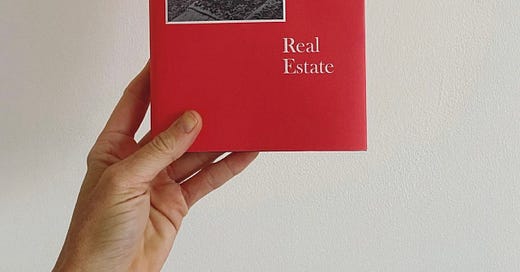16. Real Estate | Deborah Levy
This is the third book in a ‘Living Autobiography’ trilogy by my fave Deborah Levy. I recommend reading them in the order in which they are written:
Friends,
If we are close irl then it’s highly likely I’ve gifted you a copy of this book proclaiming her to be one of the best reads of my life (still true in 2022).
Deborah Levy was born in South Africa (same! 🙋♀️) and moved to London as a child with her parents. Her father was an activist opposed to the Apartheid regime in South Africa at the time and so the family moved out of a concern for their own personal safety.
This Guardian article about Deborah’s trilogy is where I first found the books and this paragraph in particular resonated:
"The book asks more questions than it answers, most of which circle back to the idea of a woman’s desires and how those would look if they could be separated from the expectations of a patriarchal culture: “You never know what a woman really wants because she’s always being told what she wants.” The desire for the security of real estate, long ago embodied in Virginia Woolf’s idea of a room of one’s own, is, for Levy, not merely a matter of property but of staking out territory artistically. At a party in London, she is confronted by a male writer of a similar age who seems determined to diminish her recent success. “The truth was that he viewed every female writer as a sitting tenant on his land.”
Dog-eared & highlighted by moi:
“It seemed that acquiring a house was not the same thing as acquiring a home. And connected to home was a question I swatted away every time it landed too near me. Who else was living with me in the grand old house with the pomegranate tree? Was I alone with the melancholy fountain for company? No. There was definitely someone else there with me, perhaps even cooling their feet in that fountain. Who was this person? A phantom.”
“we do not have to conform to the way our life has been written for us, especially by those who are less imaginative than ourselves.”
“A life without swimming every day was not a life I wanted.”
“Bengali philosopher, poet and composer Rabindranath Tagore: It is very simple to be happy, but it is very difficult to be simple.”




